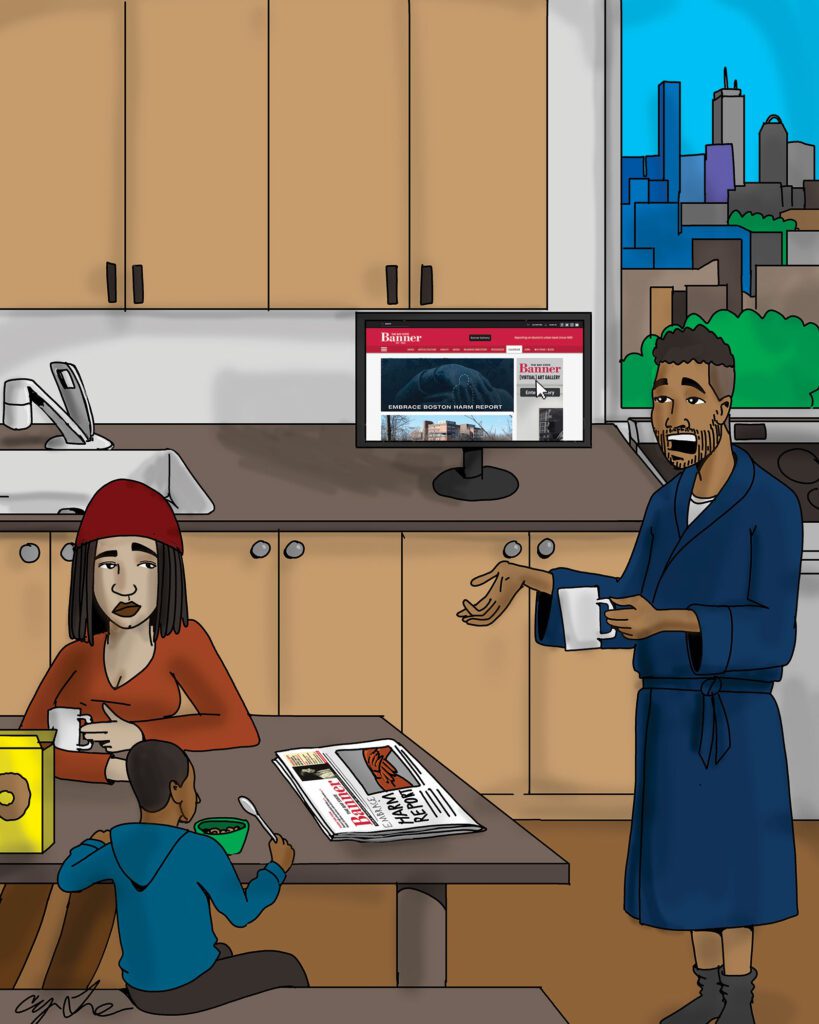
As Boston’s Reparations Task Force begins its research to identify the damage done by centuries of systemic racism in Boston, Embrace Boston has released its “Harm Report: Connecting the Past to the Present State of Black Boston.” The report identifies the harms to Boston’s Black community by the forces of discrimination and bias from the Colonial era up to the present day.
The groundbreaking study, while stopping short of recommending who exactly should be compensated for the city’s legacy of legal and informal discrimination towards people of color, clearly shows the need for reparations.
The important work by Embrace Boston demonstrates the commitment of the organization to go beyond celebrating the achievements of the city’s adopted sons and daughters through monuments like the iconic bronze tribute to the Rev. Martin Luther King Jr. and Coretta Scott King on Boston Common. Embrace Boston seeks to become something bigger — a living and dynamic tribute to such civil rights heroes, honoring them through action to redress the wrongs of the past.
The report covers seven areas of harm created by the legacy of slavery, Jim Crow, redlining, segregated substandard educational institutions and continued discrimination in Boston: culture and symbols; housing; transportation and infrastructure; education; criminal legal systems; health; and income and wealth.
In the domain of culture and symbols, the report identifies how the lack of historical representation of the Black experience in Boston continues to promote a whites-only image of Boston that minimizes the contributions of its Black citizens over the centuries. Embrace calls on municipal leaders to create a third space to accurately tell the stories of the contributions of Black people and culture to the Greater Boston story.
In the housing arena, Embrace identifies Boston as one of the first cities to allow discriminatory housing practices that negatively affected communities of color, not only limiting where we could live, but limiting how much wealth we could accrue. While calling for measures to address past anti-Black policies of redlining, the report also details the impact of gentrification. Boston, which ranked third in the country for gentrification between 2013 and 2017, has increasingly seen its Black population drop, upending stable neighborhoods and cutting generational ties between families who bonded together for support.
In the area of transportation, the report outlines the many decades of disparities created by public infrastructure in the transportation system. The disparities in mass transit continue to create barriers to advancement for communities of color, as one-hour bus rides up from Mattapan Square to Grove Hall clearly demonstrate. Embrace also shows how the construction of many U.S. highways negatively impacted communities of color by literally cutting them in half or removing them altogether to make access to city centers easier for white suburban commuters.
Transportation policy, including highway construction and the lack of transportation or limited access to transportation, also helped to negatively affect health outcomes, health care quality and health care access. Asthma rates are higher among children growing up near highways. Mass transit disparities feed into barriers to seeking and receiving health care and contribute to food deserts.
The education section paints a bleak picture of learning deficiencies and squandered opportunities to prepare our children for a lifetime of meaningful employment. The statistics, covering pre-kindergarten through postgraduate education, are startling and remind us how far we have to go to truly create a fair and balanced educational system in our Greater Boston community — an irony, to be sure, in a community that includes many of our nation’s most prominent schools of higher learning.
When it comes to criminal justice, the report is equally thorough, outlining centuries of racist practices that discriminate against Black people. It calls on Boston public officials to engage in conversations to identify current systems that can create reparations to make up for the harms caused by unjust legal practices.
As for health, the report shows how the impact of living in redlined communities contributes to higher rates of asthma, negative birth outcomes, and cancer among other effects. The report also highlights that reforms to our health care system are not fully effective, because they fail to address the underlying issues of race and racism that continue to persist in Boston.
The ability to build up income and accrue wealth is affected directly or indirectly by all of the injury areas outlined by the Embrace report, the most hostile bias in that arena being employment discrimination shaped by resentment, racism and ignorance.
In conclusion, the report calls for reparations for Black residents of Boston and Massachusetts, and calls for continued study and research. Only through identifying and understanding barriers to advancement can we craft comprehensive solutions to promote healing restorative justice for Black and brown communities.
Embrace Boston deserves praise for producing a refreshing look at what changes Boston needs to truly embrace to create a society free of discrimination and, at long last, repair the damage of centuries of systemic racism. The call to action clearly runs through reparations, sending a signal that the process of righting past wrong is more urgent than ever.







